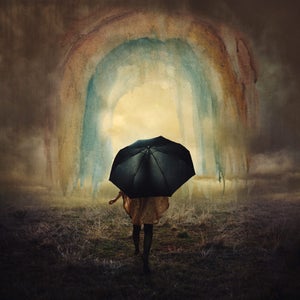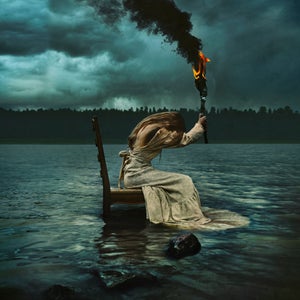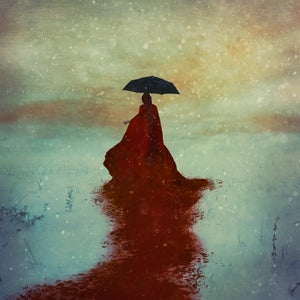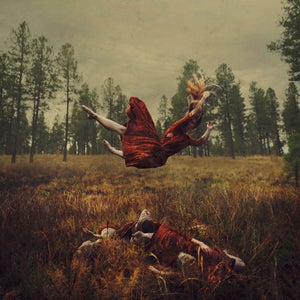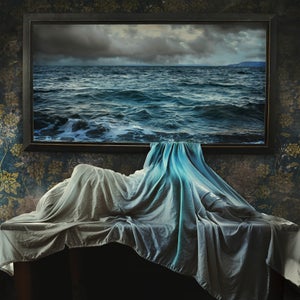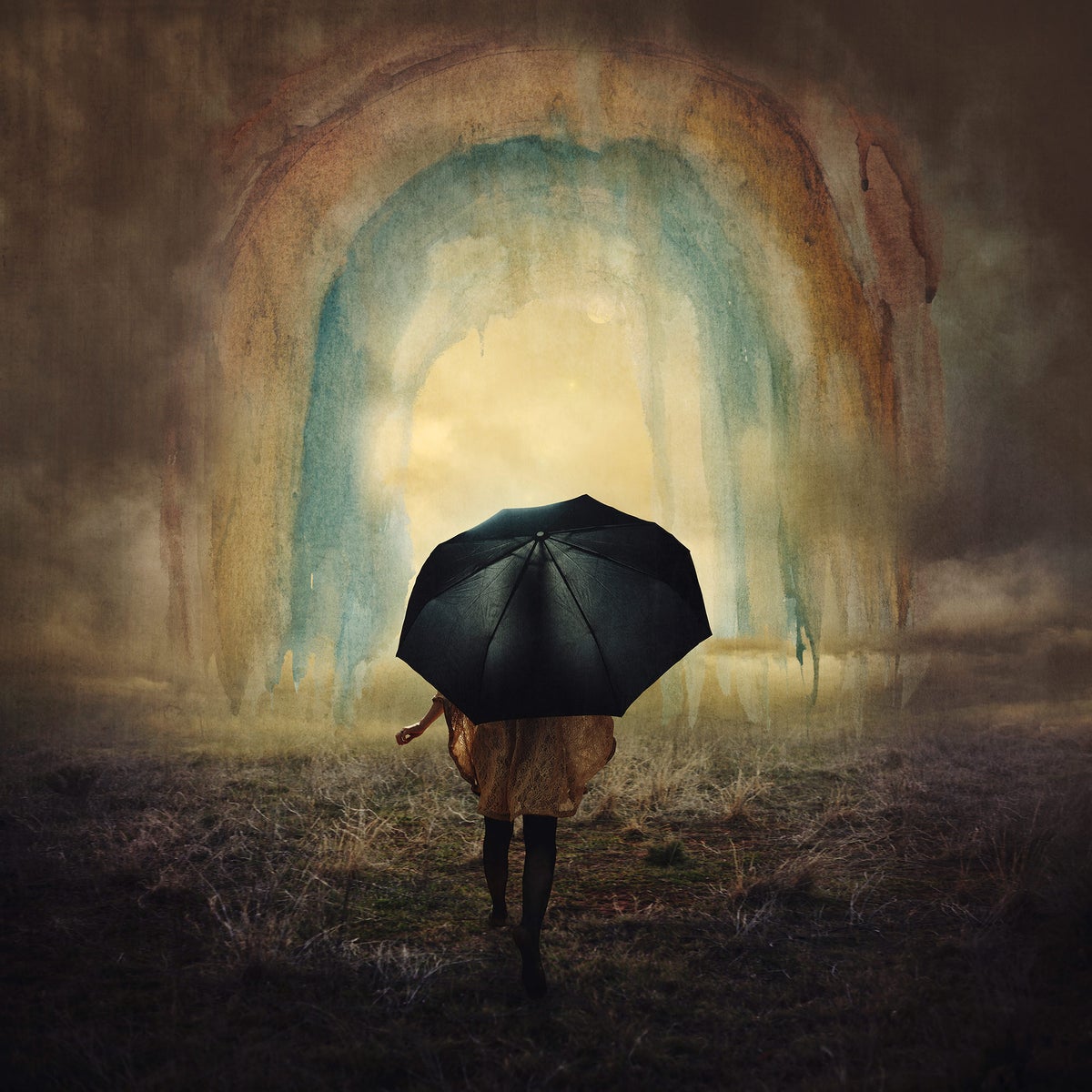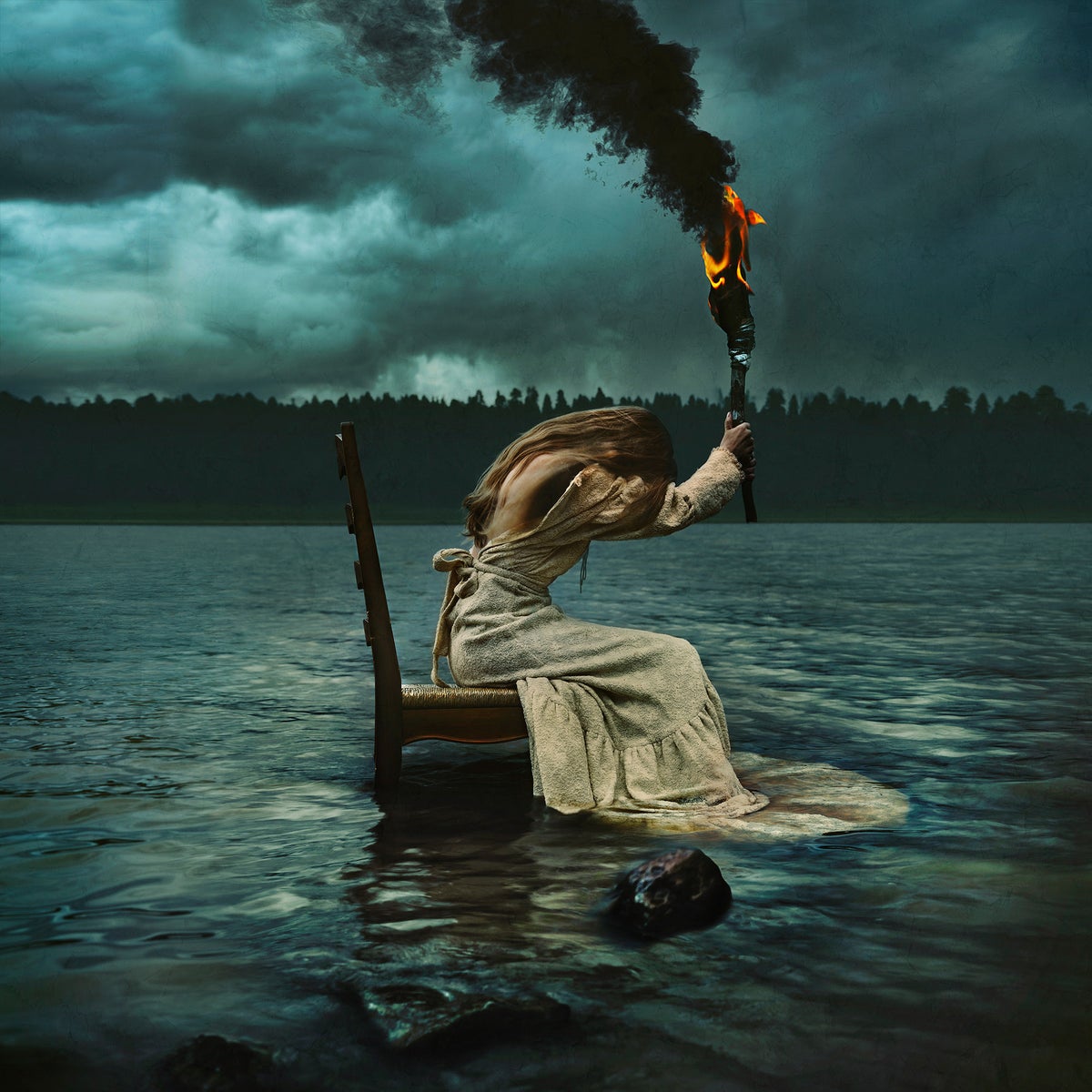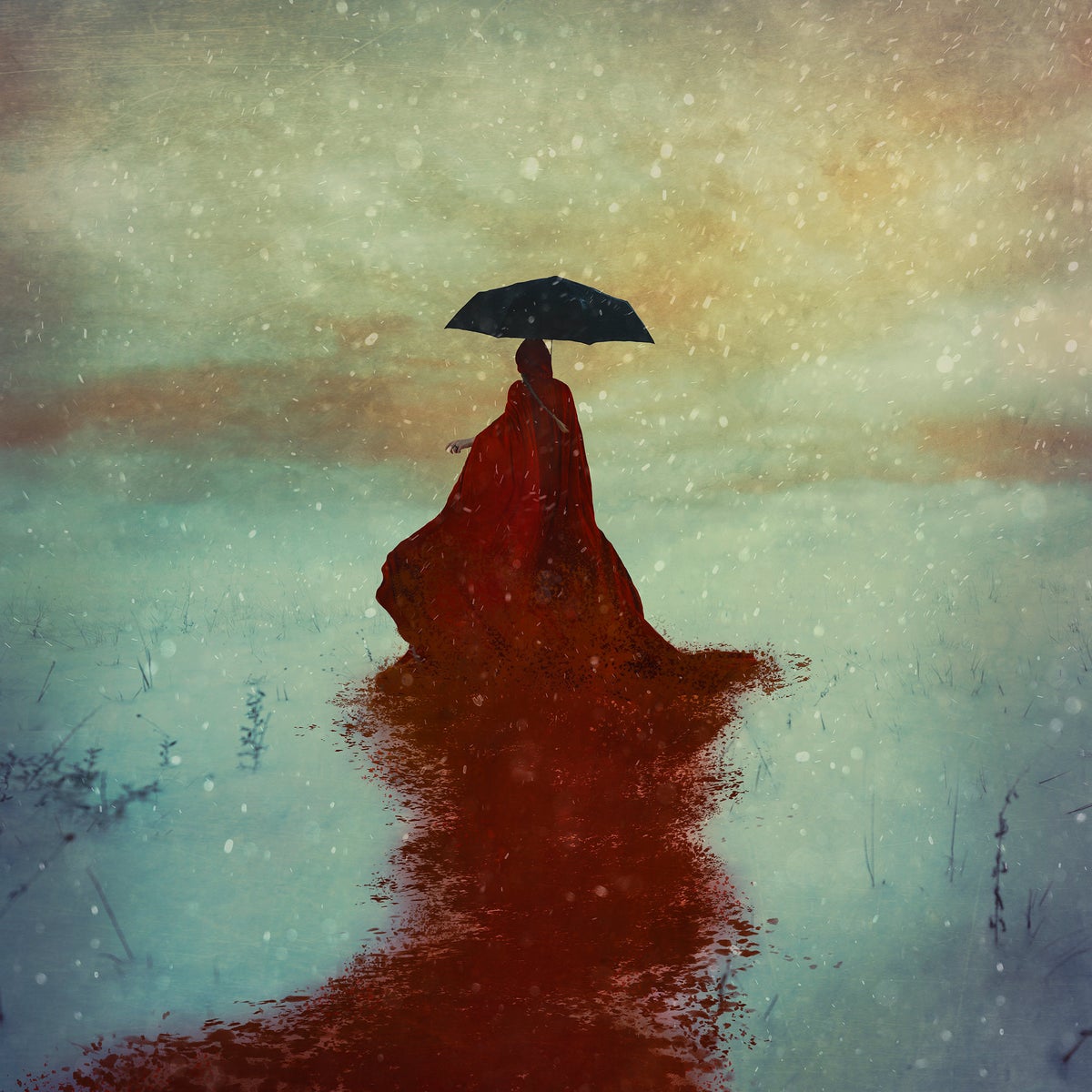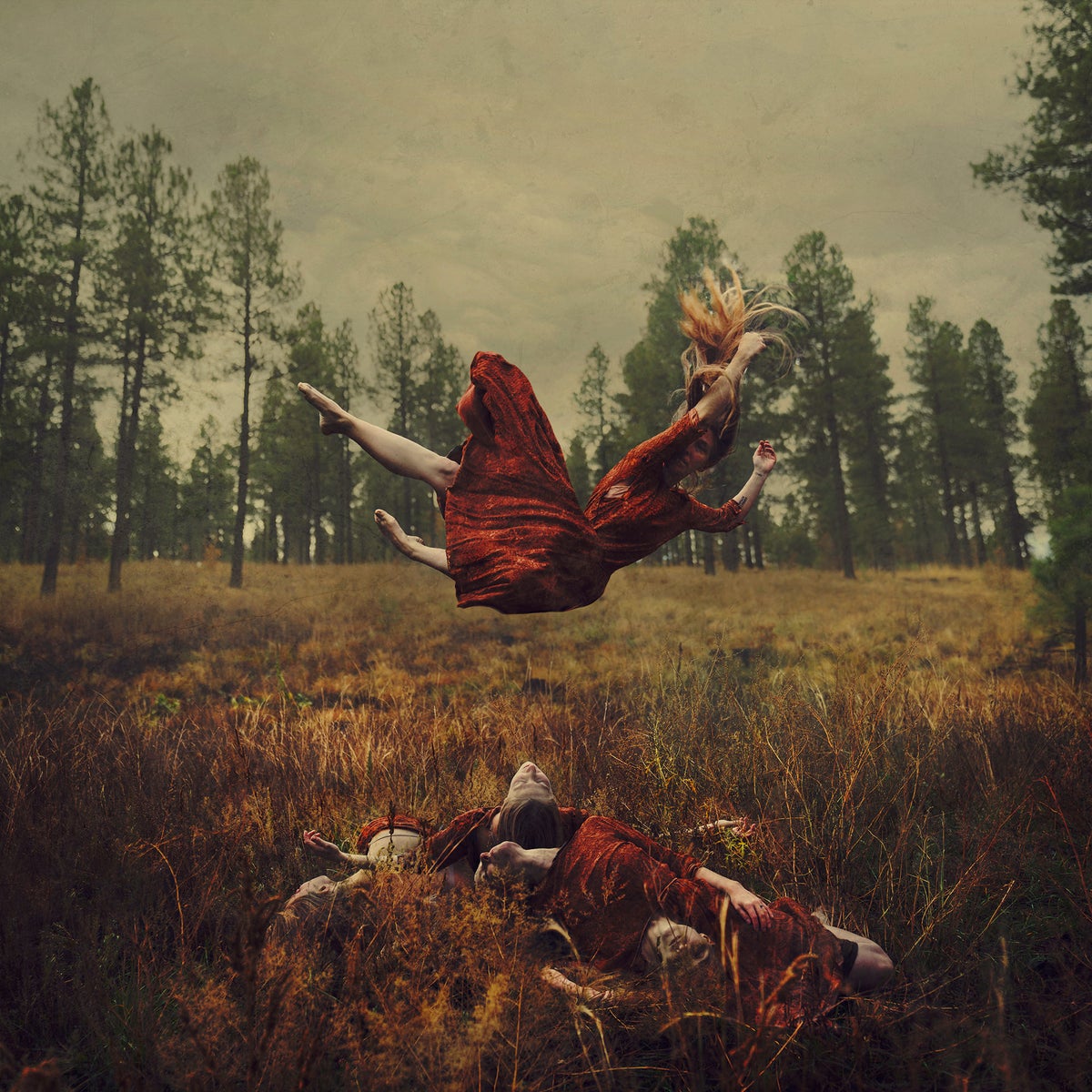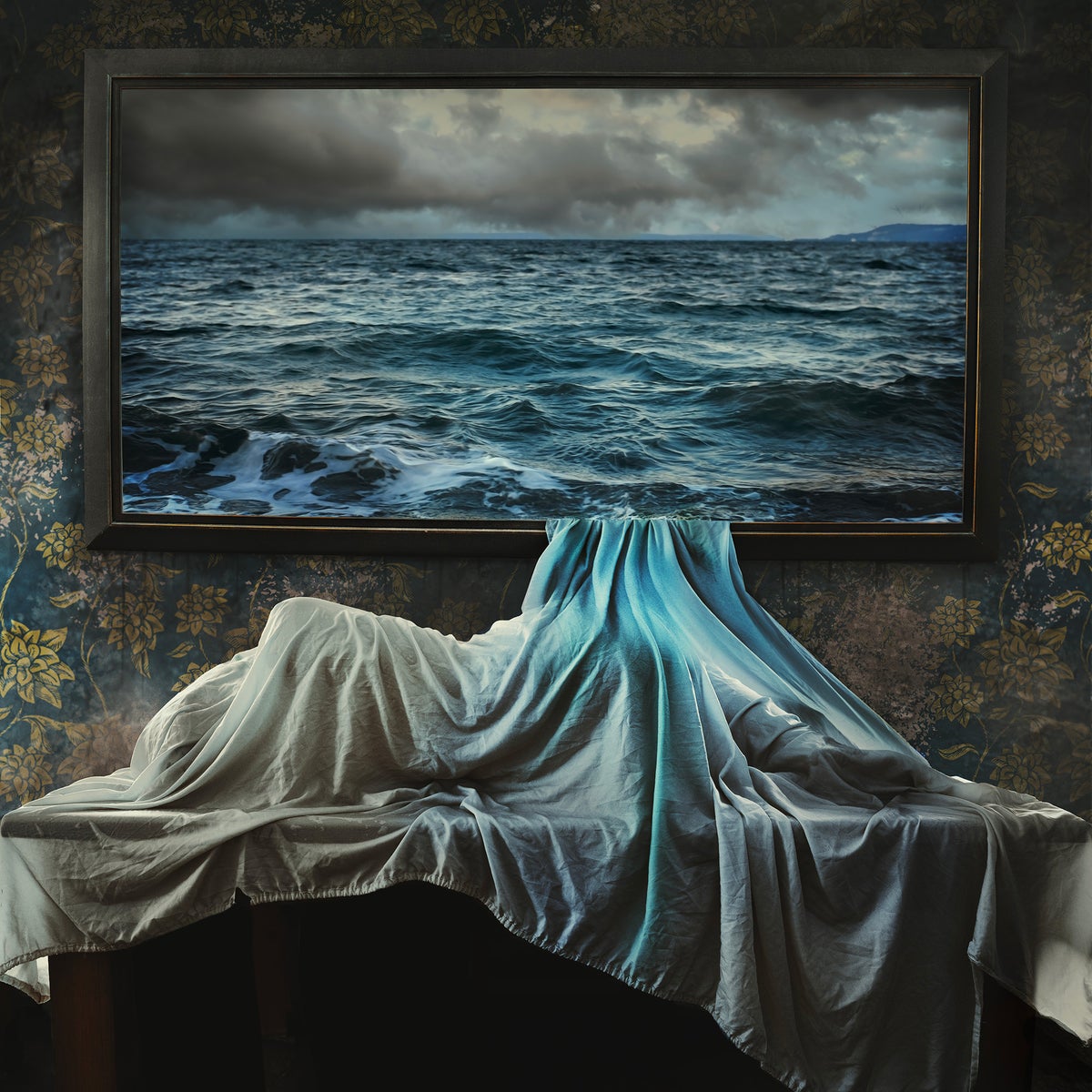Sony Artisan and self-portrait artist Brooke Shaden (@brookeshaden) has a simple process for her fine art self-portrait shoots, and it requires a streamlined setup that’s easy for her to run while also being the main subject. Using an ultra-high-resolution Sony Alpha 7R V and one of the sharpest and most versatile lenses, a Sony 24-70mm G Master II, Shaden captures the visual elements that enable her to push the bounds of her imagination We caught up with her to learn more about how she uses her single camera and single lens combination – keep reading as she shares what’s in her bag.
Product Preview – In This Article You’ll Find:
–Sony Alpha 7R V
–Sony 24-70mm f/2.8 G Master II
–Sony TOUGH Memory Cards
–Sony ECM-GZ1M Microphone
I’m a little creative weirdo who shoots self-portraits as fine art, exhibits in galleries and museums, and is absolutely obsessive about creativity. I do about 2-3 shoots per week, though only one of those usually sees the light of day. My works are dark and surreal, bursting with stories that make you question what it means to be alive. My process is simple: it’s me, my camera and tripod, and a big list of ideas. Much of my process falls into conceptualization. When I finally get to shooting, the idea has already been planned out meticulously. When it comes time to create, I need my process to be smooth, and streamlined. My gear is extremely important to that process, especially as I need it to be easy to carry, simple to use, and maximized for large printing later. Please enjoy my bag!
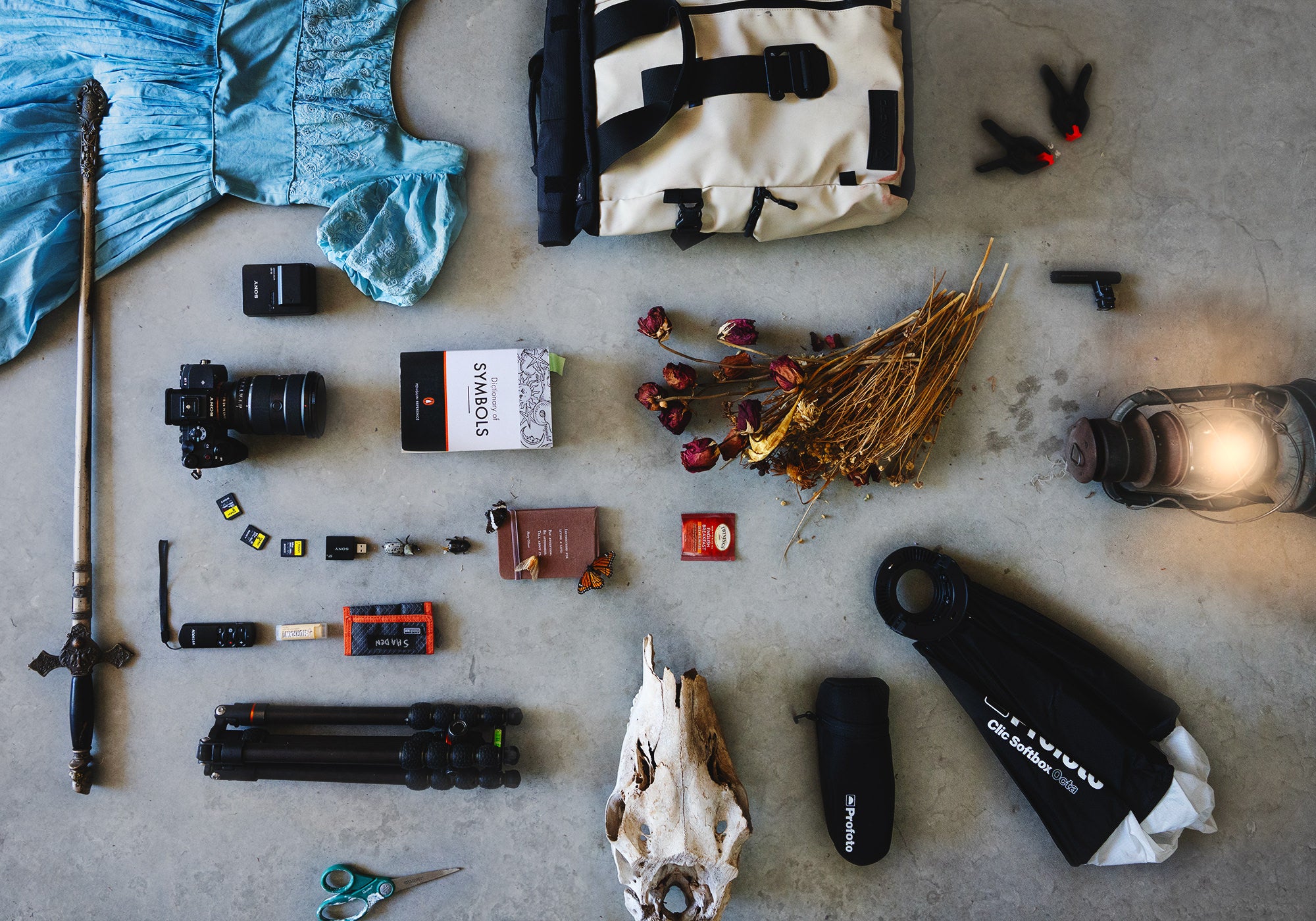
Camera
Sony Alpha 7R V: This camera is my everything. I use it for shooting stills and behind the scenes video. As a self-portrait artist, the flip screen makes my job a breeze. I think back to my beginning days of photography and self-portraiture, wishing my workhorse camera would let me see what I was doing in front of the camera. Now, it’s here. Combined with having 61MP and such a high dynamic range, it’s the perfect camera for fine art. I can shoot in low light and in unexpected spaces and still come out with great image quality that I can print large for exhibitions. I simply don’t need another camera.
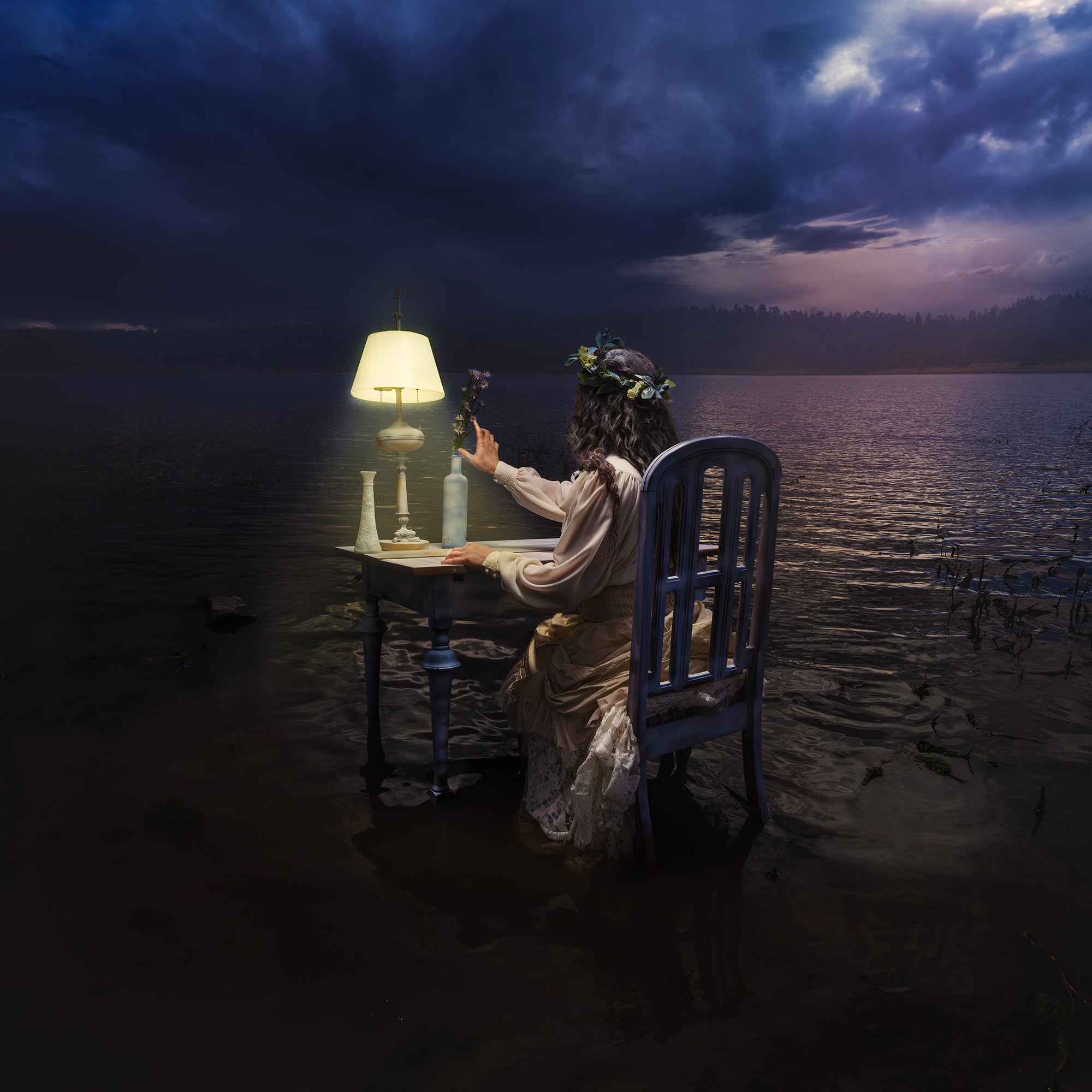
Photo by Brooke Shaden. Sony Alpha 7R V. Sony 24-70mm f/2.8 G Master II.
Lens
Sony 24-70mm f/2.8 G Master II: I own a single lens, and it’s the Sony 24-70mm f/2.8 GM II lens. With its f/2.8 aperture, I often find myself up before the sun, running out into the forest in extremely low light to create a moody piece of art. With this lens, I don’t worry about a thing. I can shoot wide at 24mm, or tight for a blurry background/portrait effect. I can shoot wide open, too, and given that I don’t often use lights in my work, that f/stop allows me to create separation between my subject and background. Having a light kit is essential for me since I’m just one (rather tiny) human lugging gear around alone, and shooting by myself.
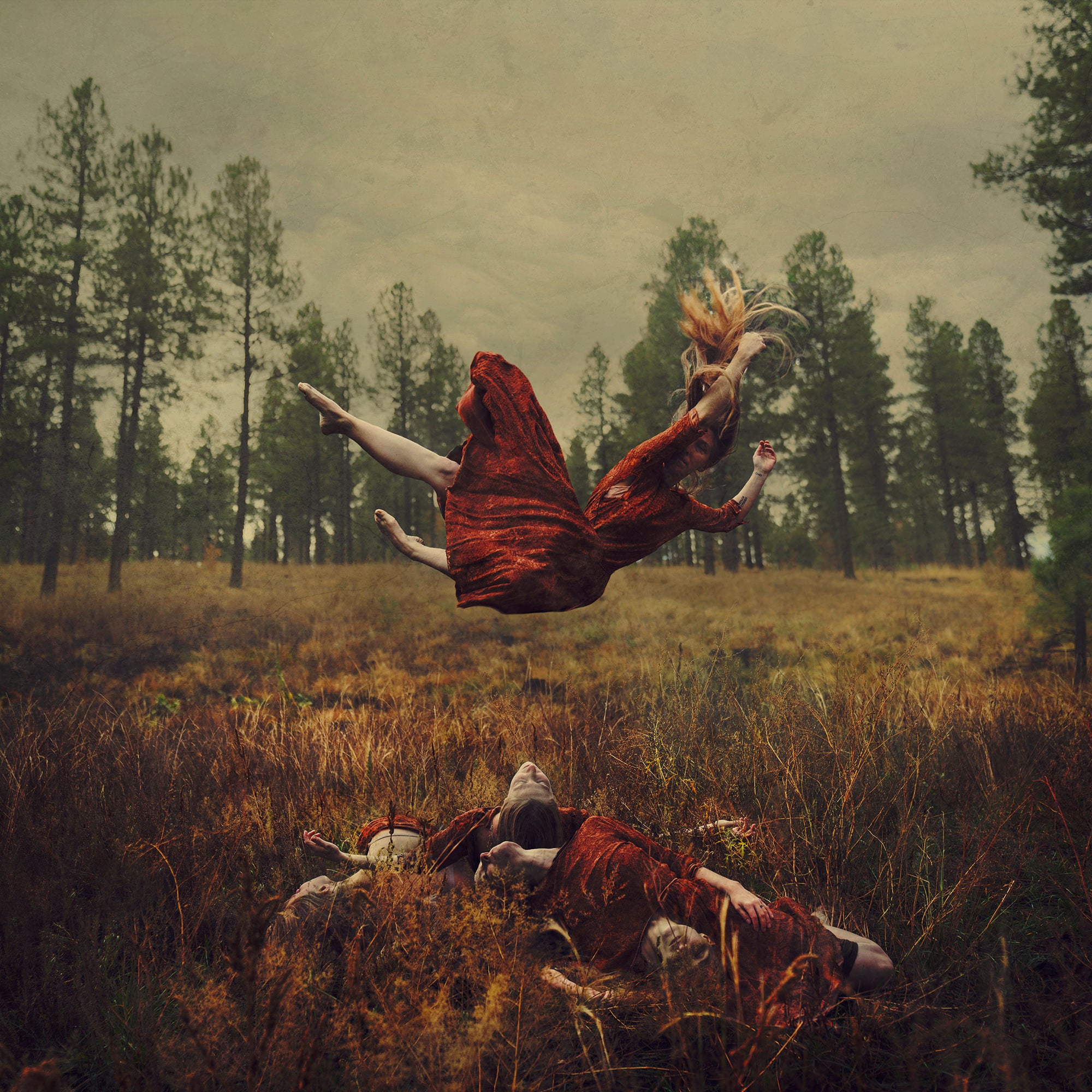
Photo by Brooke Shaden. Sony Alpha 7R V. Sony 24-70mm f/2.8 G Master II.
Accessories
Aodelan Remote: Having a Bluetooth remote means I can shoot self-portraits and truly hide the remote for the shot. Because it doesn’t need a direct line of sight to the camera, I can keep the remote out of sight for seamless self-portraits that I can count on to be correctly autofocused (thanks to the eye-auto-focus of the Sony Alpha 7R V).
Sony TOUGH Memory Cards: My fleet of nine Sony TOUGH cards (a mix of 128gigs and 64gigs) gives me peace of mind anywhere I go. From dropping my memory card in a lake (oh yes, I’ve done that…more than once) to losing them in the mud, I can always trust they’ll still work when I get home.
Sony Card Reader: I travel about 3-4 months out of every year, so having a way to load my images onto a laptop to edit on the fly is a great way for me to keep up with the workload.
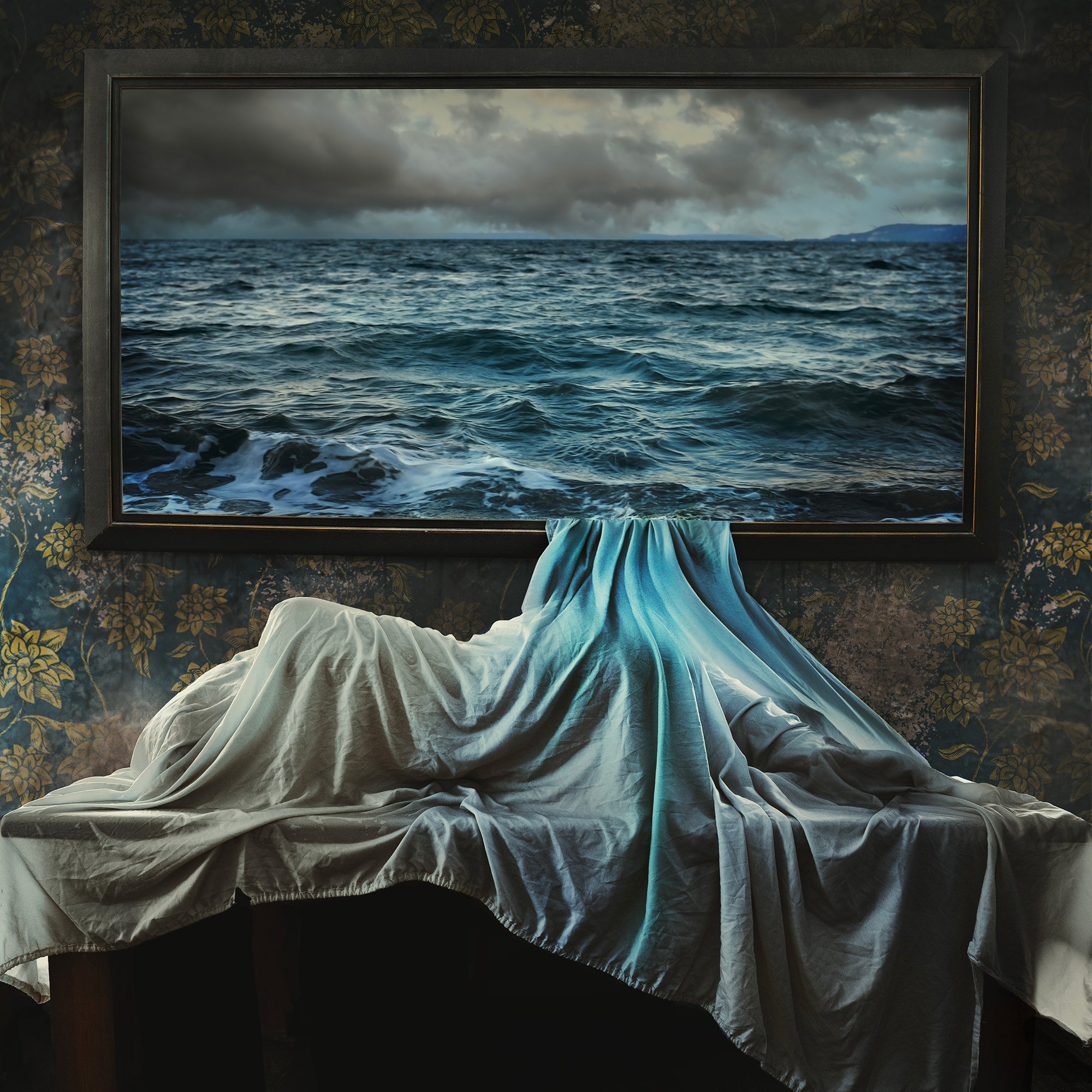
Photo by Brooke Shaden. Sony Alpha 7R V. Sony 24-70mm f/2.8 G Master II.
3 Legged Thing Tripod (Brian): As a self-portrait artist, I need a light-weight yet sturdy tripod to be my hands as I photograph myself for my art. My 3 Legged Thing can be assembled and disassembled in seconds, and is light enough for me to heft around easily as I often hike miles to get to photoshoot locations.
Sony ECM-GZ1M Microphone: It’s no secret I do everything myself: shooting, modeling, editing, and filming. Filming my photoshoots is often the last thing on my mind, so having a microphone I can slip onto my camera and know will work without a hitch is essential to ever getting any behind the scenes or educational content filmed while on location.
Lighting – Profoto A10 + Clic Softbox: Introducing a single light into my work has been revolutionary over the past year. This lightweight kid fits in my backpack so I can make my images more cinematic when I’m on location.
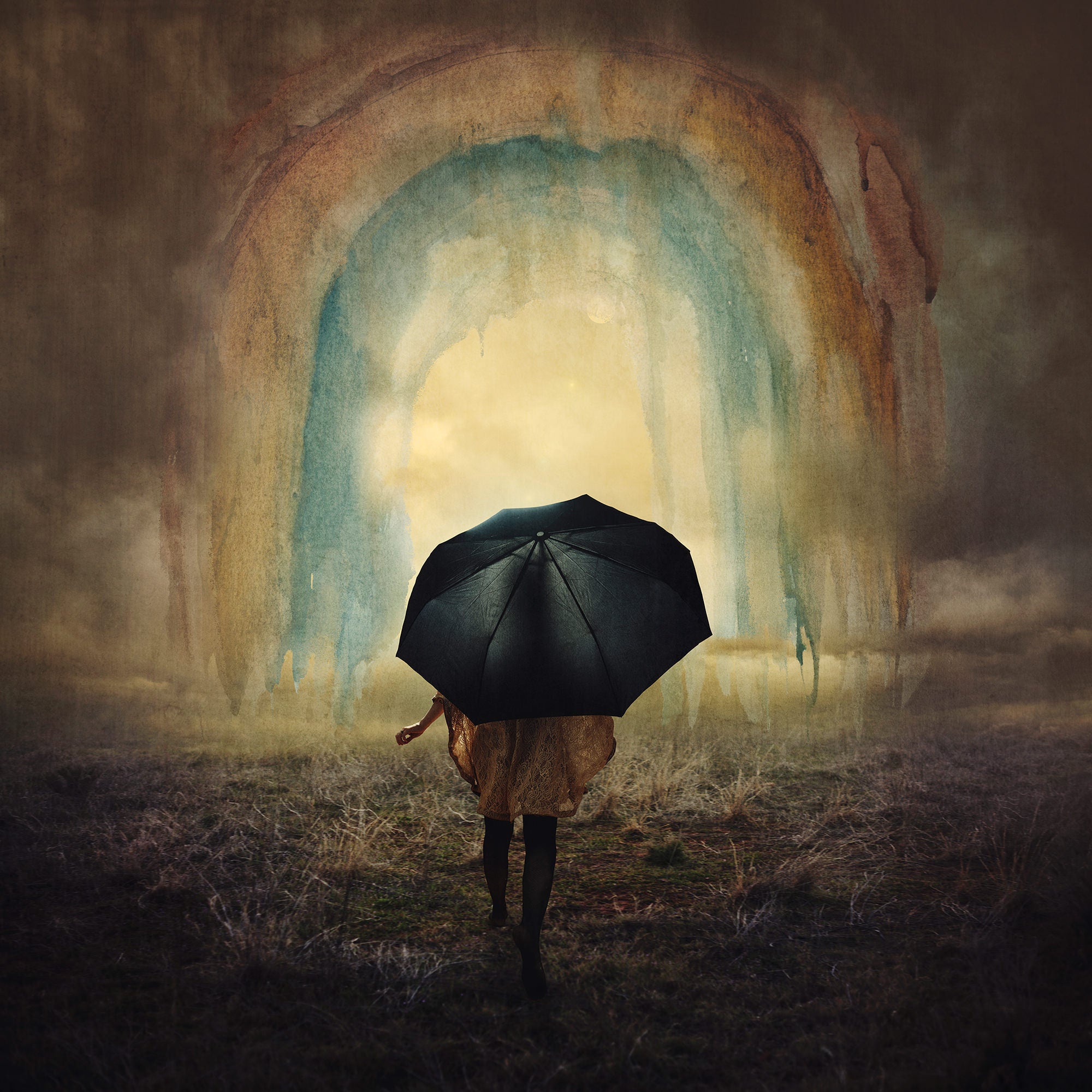
Photo by Brooke Shaden. Sony Alpha 7R V. Sony 24-70mm f/2.8 G Master II.
PRVKE Travel Backpack: A waterproof bag with multiple grab-points that holds not only my camera, tripod, and lighting, but also my costumes and props? Absolutely essential, it travels with me everywhere.
Props: My props and costumes change per shoot, but my garage is filled to bursting with everything you could hope for, from a carousel horse to found bones to dead flowers, clocks, ladders, lanterns, poofy dresses, moss, and more. A shoot doesn’t go by where I’m not lugging something very, very strange along with me. Can you spot my dead bug collection? I keep them in a little, tiny wooden coffin. (It’s okay, we’re all mad here).
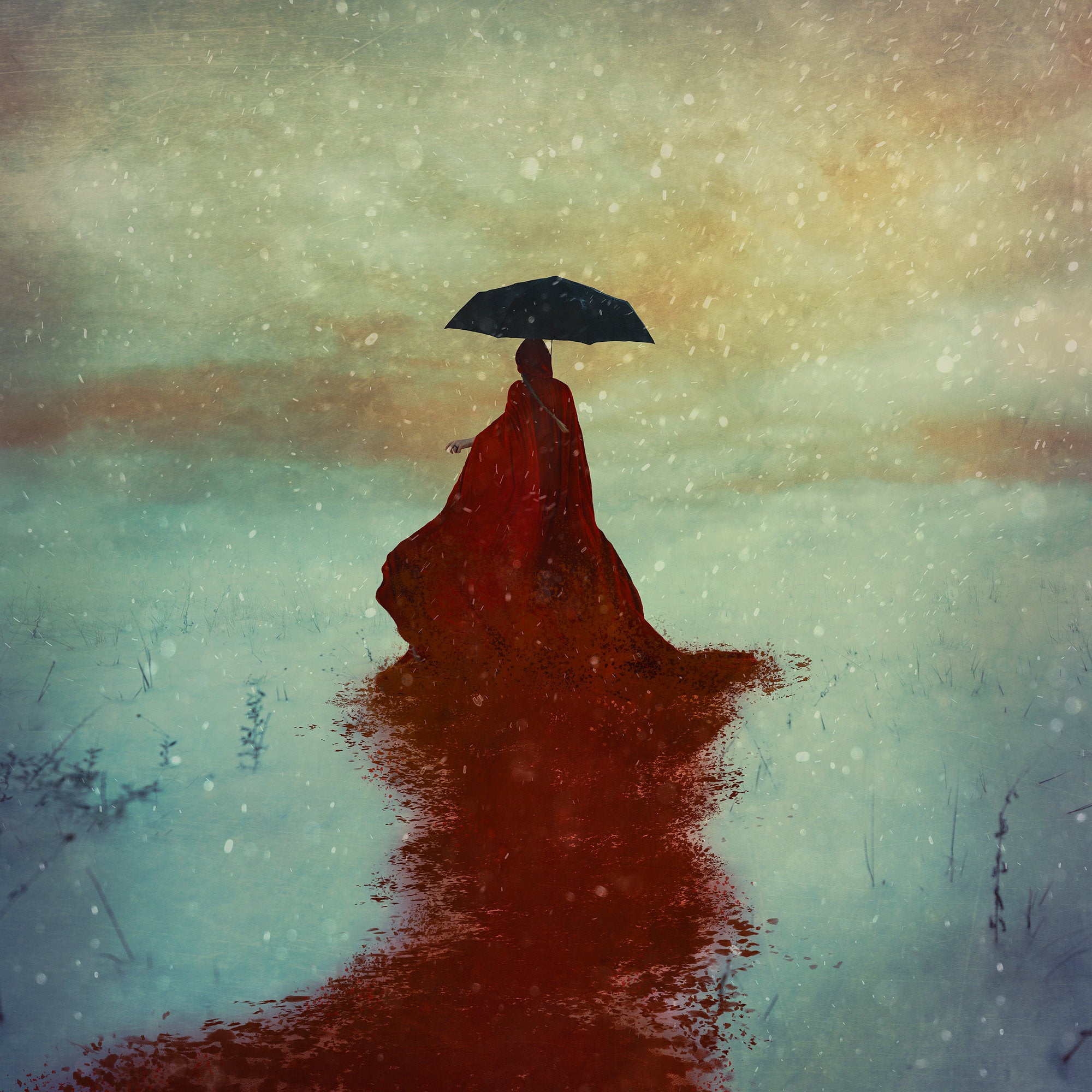
Photo by Brooke Shaden. Sony Alpha 7R V. Sony 24-70mm f/2.8 G Master II.
Notebook: Sure, we all have phones in our pockets to take notes in, but there’s something more reverent about keeping a small journal. Mine has a poem by Mary Oliver on the front: “Instructions for living a life: Pay attention. Be astonished. Tell about it.”
Some other components: Having scissors, rope, tape, and clamps on hand for my shoots always comes in handy. You never know when you’ll forget your tripod plate and a couple of well-placed rubber bands save the shoot. Oh, and some decaffeinated English breakfast tea. Obviously.
*Not pictured: Microsoft Surface Studio My main editing computer is the massive Microsoft Surface Studio, a touch-screen editing computer that lays flat on my desk for maximum control while I composite my images.
See more of Brooke’s work on Instagram (@brookeshaden) and on her Alpha Universe Profile.
